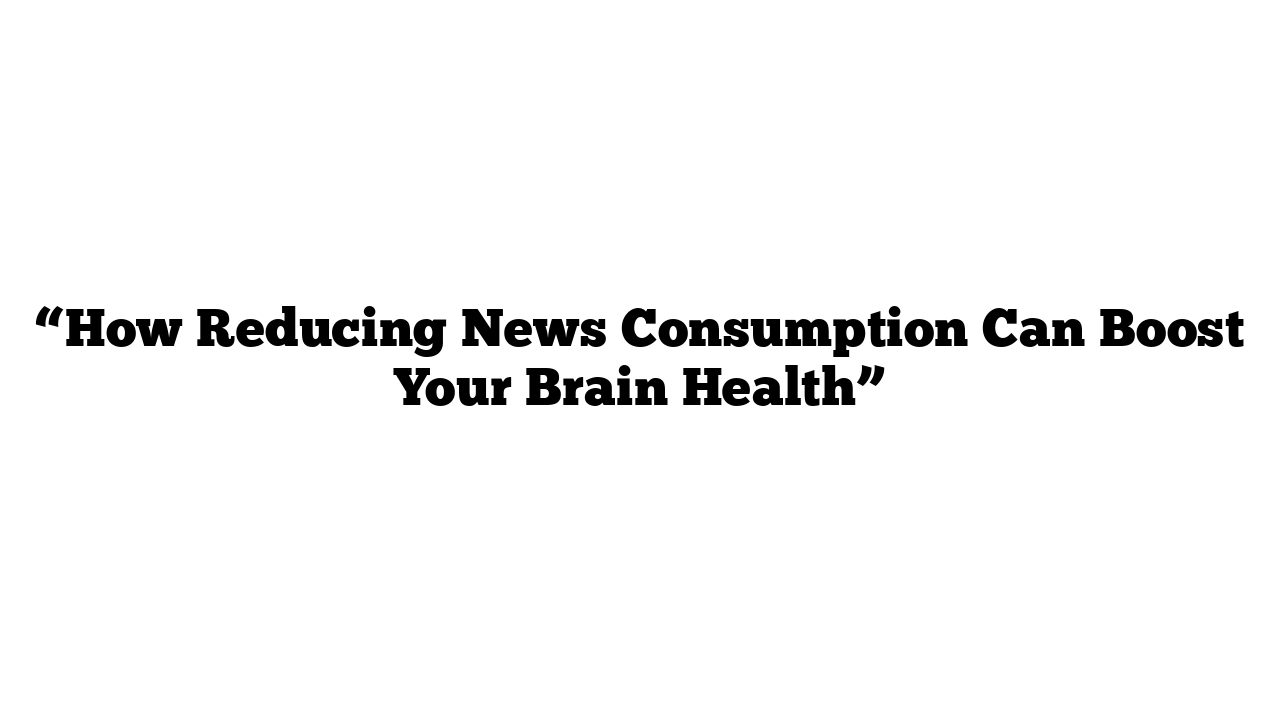In today’s world, news is available 24/7, filling our screens with a mix of information that often emphasizes fear, doom, and negativity. While staying informed is important, excessive exposure to negative news can harm our mental and physical well-being, especially our brain health.
Understanding how news impacts our emotional state and taking steps to limit it could have a significant, positive effect on your brain. Let’s explore how news consumption affects you and what you can do to protect your brain.
How News Consumption Affects Your Brain Health
1. Mood and Emotional Impact
Constant exposure to negative news can lead to a state of heightened stress, anxiety, and sometimes even depression. Research suggests that emotions like fear and anxiety are stimulated when we consume upsetting content. Over time, these emotions can have real effects on our brain’s structure.
“Consistent negative news can create a mental strain similar to being in a high-stress environment,” explains Dr. Sarah Clarkson, a leading psychologist in the USA.
2. Physical Effects on the Brain
Repeated exposure to disturbing content isn’t just emotionally taxing; it can also lead to physical changes. Studies reveal that prolonged stress affects the hippocampus, the part of the brain responsible for memory and learning. This can lead to memory problems, reduced mental clarity, and even shrinkage of this critical brain region over time.
Reducing your news intake and focusing on uplifting or balanced news can help protect your brain from these long-term effects.
Practical Tips to Safeguard Your Brain
Limit Your News Intake
Consider setting specific times for news consumption instead of checking every hour. Many people find that reducing news exposure to once or twice a day prevents constant stress. For example, checking the news in the morning and early evening can help you stay informed without overwhelming your mind.
Seek Out Positive News Sources
Balancing negative content with positive or solution-oriented news can boost your mood and reduce stress. Sources like Good News Network and Positive News offer constructive stories that provide hope and optimism.
For more ways to balance your news intake, visit medicaltimes.io for tips on how to protect your mental health.
Curate Your Feed and Avoid Clickbait
Many headlines today are designed to provoke strong reactions, drawing readers in with alarming titles. Choose sources that prioritize well-researched, informative stories without sensationalism. Social media feeds can also be customized to minimize overly negative content.
How Cutting Down News Benefits Your Brain Health
- Improved Mood
Reducing negative news exposure has been shown to lower feelings of anxiety, anger, and sadness, leading to a more positive outlook on life. - Better Cognitive Function
When stress is minimized, brain functions like memory and focus improve. Chronic exposure to distressing content can trigger cortisol release, impairing brain performance. - Enhanced Sleep Quality
Checking the news right before bed can lead to poor sleep. Studies indicate that high-stress exposure before bedtime increases nighttime wakefulness and reduces sleep quality.
Embracing Healthier Media Habits
Protecting your brain is about creating balanced, mindful habits around the information you consume. Simple steps, like filtering out excessive negativity, can support your mental health and cognitive well-being.
For more tips on brain health and ways to improve mental wellness, visit medicaltimes.io.
